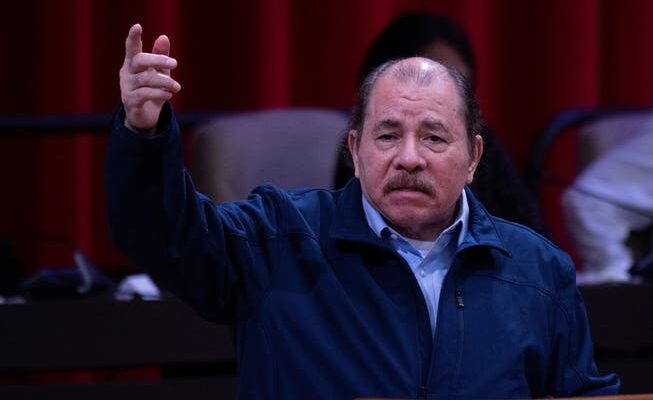The repression in Nicaragua has now reached the Catholic Church. If the regime is not vigorously opposed, the last remnants of the opposition will soon be brought into line.
Daniel Ortega speaking in Havana, Cuba, in December 2022.
The dramatic human rights situation in Nicaragua has almost been forgotten. The Russian war on terror against the civilian population in Ukraine, the oppression of women in Afghanistan and the repression of members of the opposition in Iran are currently dominating the news too much. But since the bloody demonstrations against Daniel Ortega’s dictatorship in 2018, which left more than 60 people dead, the former revolutionary has been wiping out the last elements of independent action in civil society one by one.
The opposition students have fallen silent as a result of the bloody repression. The leaders of the Confederation of Businessmen who were critical of the government were jailed, as were all valid opposition candidates ahead of the last presidential elections in late 2021. More than 3,000 non-governmental organizations had to shut down, as did over 50 independent media outlets.
According to the UN High Commissioner for Human Rights, Volker Türk, there are currently 225 political prisoners in Nicaragua. Many of them languish in the notorious El Chipote prison on the outskirts of Managua. This was already used by the dictator Anastasio Somoza fifty years ago to suppress dissidents, when Ortega still pretended to be fighting as a guerrilla against the dictator for the freedom of the Nicaraguan people.
The church is the last bastion of civil society
Now Ortega is preparing to raze the last independent bastion of civil society, the Catholic Church. Christian charities such as Mother Teresa’s Missionaries of Charity were forced to leave the country this year, and at least 11 priests were imprisoned along with seminarians and lay theologians. In August, Bishop Rolando Álvarez of Matagalpa, Ortega’s most outspoken critic among church leaders, was placed under house arrest. In mid-December he was charged with conspiracy to undermine the unity of the nation and spreading false news. The trial against him is scheduled to begin on January 10th. It is obviously a show trial intended to silence the Catholic Church in general.
Western policies aimed at halting the slide into tyranny have so far had little success. Attempts to encourage negotiations between the regime and the opposition to bring about an opening have failed. Representatives of the opposition at previous negotiations are now in prison. Instead of giving the opposition more leeway, Ortega is at best negotiating prison conditions in El Chipote.
Lukewarm reactions from the Vatican
So far, the Vatican has attracted attention more by kicking its heels than by taking sides with the imprisoned bishop. Pope Francis half-heartedly expressed his concern about the situation in Nicaragua after the August arrest and called for dialogue. Rather than public condemnation, Rome appears to be relying on closed-door talks to persuade the government to relax repression. But precisely such attempts have repeatedly failed in the last four years.
The sanctions imposed by the USA and other western countries have had little effect so far. Russian and Chinese aid can compensate for the losses. The Americans must therefore show Ortega that they are willing to go much further than before, for example by throwing Nicaragua out of the Central American free trade agreement with the USA. The dictator does not understand any other language.
Tougher action against Ortega’s regime would be in the Americans’ best interests because of the migration crisis on the southern border. Because more and more Nicaraguans are asking for political asylum in the USA. In addition, there have recently been numerous Cubans who do not need a visa in Nicaragua and who use the country as a springboard for entering the United States.
